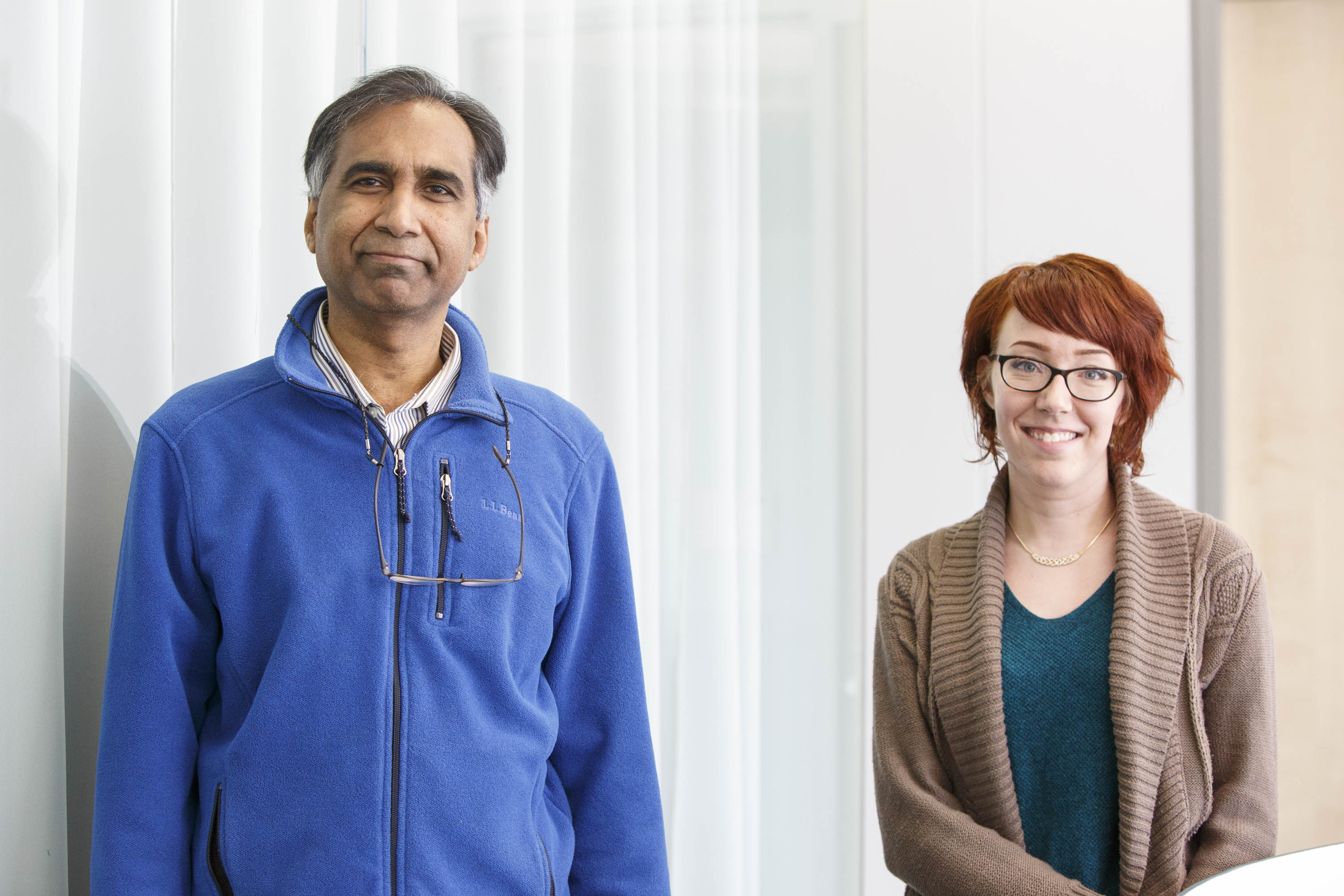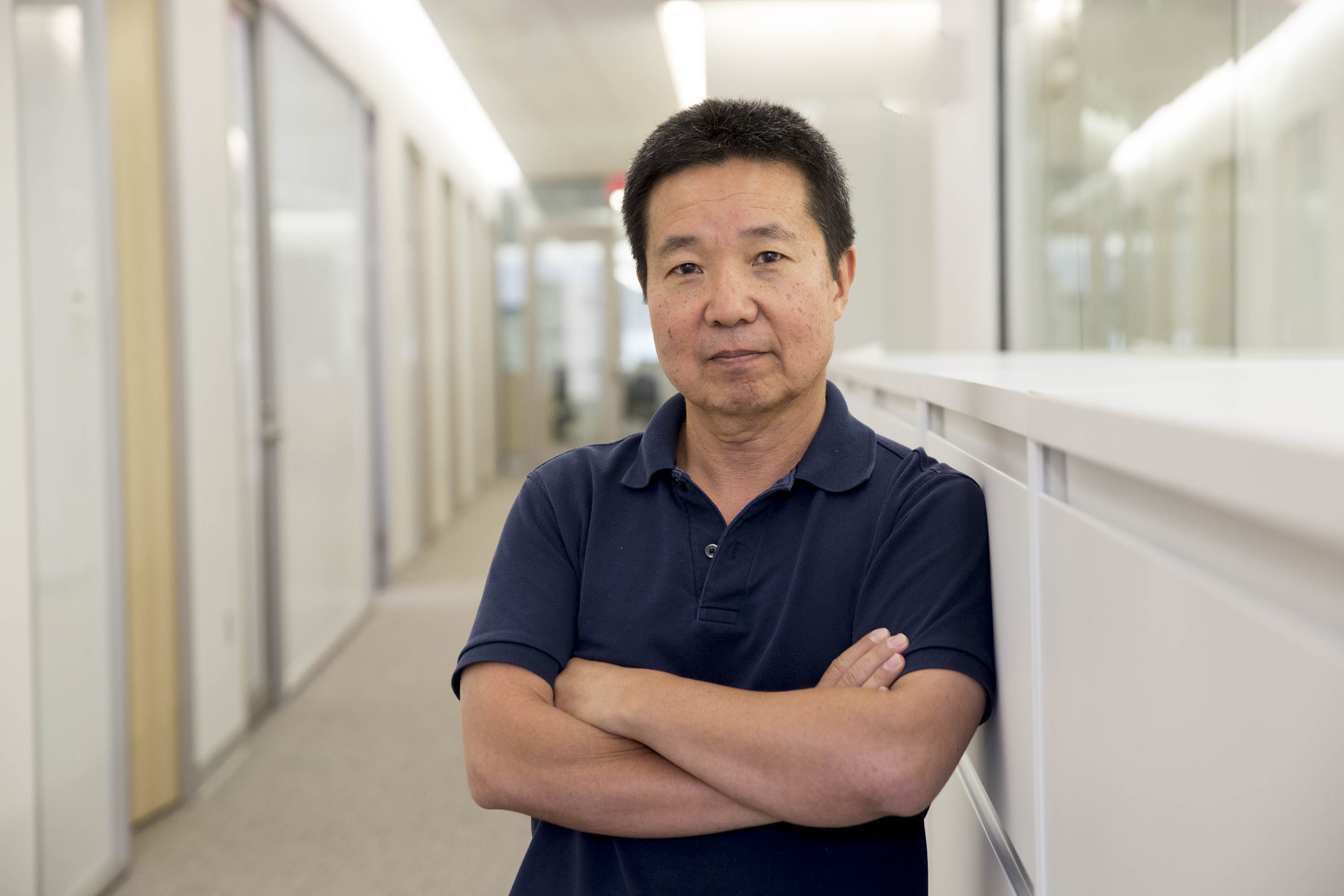By Kristen Mitchell
A George Washington University doctoral student created an app to help adult learners improve their reading skills. Working in conjunction with literacy instructors in Washington, D.C., the app helps fill a need for students who fall through the cracks.
Jennifer Hill, who completed her Ph.D. in computer science in December, created an algorithm to help adult students work through material assigned through local literacy programs. She built CAPITAL—short for Comprehension and Pronunciation Instructional Tools for Adult Learners—as a learning aid to be used alongside in-class instruction. Dr. Hill worked with literacy instructors to design algorithms that automatically generate supporting materials to assist students.
The app fulfills an important need in the community, Dr. Hill said. Adult learners face an uphill climb in acquiring literacy late in life.
“Most of the students we’ve been working with, either old or young, have been living largely in poverty and with families they need to take care of. They need to get jobs really early, they need to help sick family members,” she said. “School becomes low priority, and then next thing you know you’re an adult out in the real world, and you never learned how to read.”
There are approximately 90,000 adults living in Washington, D.C., who cannot read or write proficiently, an obstacle that prevents many of them from getting an education, finding a good job and providing for their families, according to the Washington Literacy Center.
Dr. Hill’s mentor, Rahul Simha, computer science professor in the School of Engineering and Applied Science, started working with a contact at the Washington Literacy Center about four and a half years ago to figure out how technology could be used to enhance what adult students were learning in class. When Dr. Hill came to GW as a doctoral student, she initially built a prototype focused on phonemic exercises. The program would play audio of someone saying a word and students would select the correct corresponding written word in a multiple-choice question.
Low literacy adults tend to struggle with being able to hear the differences between certain similar vowel sounds and other basic skills, Dr. Hill said. Initial feedback showed students found the CAPITAL app helpful, and instructors saw their abilities improve.
“Once we found out that we were fulfilling a need, it became a lot easier to think of all these different ways to improve the app and reach out and do more,” she said.
In its current iteration, the app intelligently decides when to reinforce material based on what the user struggled with and did well on. A student who needs more help with a particular element will see and practice it more until outcomes improve, Dr. Hill said. As students improve, the app feeds them more challenging material.

Jennifer Hill (left) works with a student at the Washington Literacy Center. Students used the CAPITAL app to improve their literacy skills outside the classroom. (Photo courtesy of Jimmie Williams)
Dr. Hill and Dr. Simha have worked with about 50 adult learners from the Washington Literacy Center, Academy of Hope and Literacy Volunteers and Advocates. The students range in age from late teens to 60s.
While most low-income adults do not have computers in their homes, many of them have access to a smartphone. Completing exercises on a smartphone helps students discreetly work on their literacy while commuting or otherwise going about normal daily activities without feeling embarrassed, Dr. Hill said.
The app also provides instant feedback to students, helping them learn and reinforce good habits in a way paper worksheets cannot. The app is designed to be used alongside in-person instruction and is not publically available.
Jimmie Williams, director of the Washington Literacy Center, said the center’s students typically read below a fifth-grade level and because of that, they don’t qualify for many job training programs. There is little funding available to help this underserved population, and the CAPITAL app is an innovative way to help students who can’t always prioritize education.
“Given that people are accustomed to being online, it’s something we would definitely like to expand the use of,” Mr. Williams said. “It also helps us with retention. When students are sick or out for a period of time, those learning costs can be large, but the app helps them keep those skills in place.”
Cheryl Kariya, a literacy instructor at Literacy Volunteers and Advocates, said many of her students hide their challenges from friends and family because they feel ashamed.
“It takes a lot of courage and education to go through a program like that if you can’t read,” she said.
Dr. Simha is seeking funding to expand use of the app. As a doctoral student, Dr. Hill channeled support she received from the Provost’s Diversity Fellowship to work on CAPITAL.
“I’m still continuing to work on the project as a side project,” she said. “It’s really important. We still have students and instructors who are using it, and I want to keep it going.”
Dr. Hill’s thesis examined CAPITAL’s usage data over 30 days and tracked the progress of 18 students who were active users at the time. Because the research team wanted users to have total privacy, Dr. Hill was unable to identify and contact them after their respective classes had ended. Usage data shows, however, several students continued to use the app after their formal instruction ceased.
Dr. Hill and Dr. Simha hope to connect more students with the app. Dr. Simha’s research group is also currently working on apps for numeracy and basic math skills.



